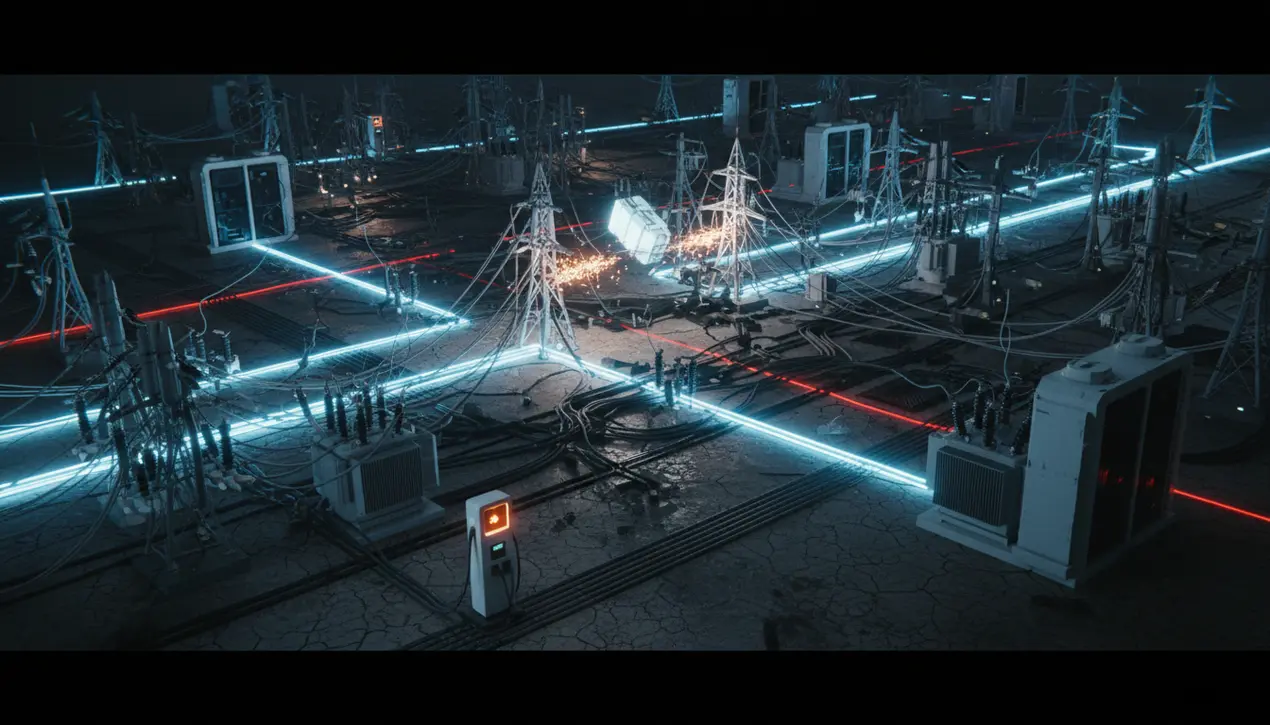
Scienceclimate scienceRenewable Energy Research
Electricity Revolution's Missing Ingredient: Interoperability
CH
Chloe Evans
2 hours ago7 min read1 comments
The global push toward an electrified future, powered by renewables, is hitting a critical roadblock that feels eerily familiar to anyone who has watched the evolution of digital finance: a profound lack of interoperability. Just as the early days of the internet were plagued by walled gardens and incompatible protocols, and as TradFi (traditional finance) and DeFi (decentralized finance) still grapple with bridging their respective silos, our energy grids are suffering from the same fragmentation.This isn't merely a technical hiccup; it's a systemic failure that artificially inflates costs, strangles innovation in its crib, and prevents us from unlocking the full, transformative potential of a digitally-native energy system. Imagine a world where your electric vehicle, your home battery, your solar panels, and the grid itself can't communicate seamlessly.They become isolated nodes, operating with one hand tied behind their back, unable to share data or coordinate actions efficiently. This creates staggering inefficiencies—surplus solar power is wasted because it can't be intelligently routed to where it's needed most, grid stability is compromised, and consumers are denied the financial benefits of a truly responsive and dynamic energy market.The parallel to the financial world is stark. For years, moving money across different banking systems or between traditional brokerages and crypto exchanges has been a slow, expensive, and opaque process.The emergence of blockchain interoperability protocols and the tokenization of real-world assets are finally beginning to tear down those walls, demonstrating the immense value that flows from frictionless connection. The energy sector is now at a similar inflection point.The urgent priority for interoperability is about building the foundational 'TCP/IP for energy'—a common set of open standards and communication protocols that would allow every component, from a massive grid-scale battery to a single smart thermostat, to speak the same language. This would unleash a wave of innovation akin to the app economy that followed the standardization of the internet.Startups could develop sophisticated energy management applications, consumers could participate in hyper-granular demand-response programs, and utilities could optimize grid load with a precision that is currently impossible. Without this digital glue, the billions being invested in smart infrastructure risk being squandered on a collection of disconnected, high-tech islands.The consequence of inaction is a slower, more expensive, and less resilient energy transition. Making interoperability the central pillar of our electricity revolution is no longer a technical nicety; it is the fundamental prerequisite for building a system that is not just cleaner, but smarter, more democratic, and truly fit for the 21st century.
#featured
#electricity grid
#interoperability
#digitalization
#renewable energy
#energy efficiency
#innovation
#costs
Stay Informed. Act Smarter.
Get weekly highlights, major headlines, and expert insights — then put your knowledge to work in our live prediction markets.
Comments
Loading comments...
© 2025 Outpoll Service LTD. All rights reserved.